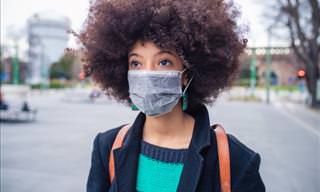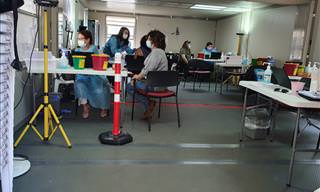The coronavirus outbreak has sent the world into a tizzy. Ever since the World Health Organization (WHO) declared COVID-19 a global pandemic, there has been widespread panic about the spread of the disease.
As we grapple with this difficult situation, it is crucial not to panic, but also to be aware of the ongoing scenario. We at BabaMail wanted to bring you a daily report on COVID-19 and will continue to do so each day so that people are kept informed about this ongoing pandemic.
#. COVID-19 cases so far

• At the time of writing, there are 228,451 confirmed cases of individuals that have been affected by the novel coronavirus.
• There are 9,357 reported deaths caused by this virus so far.
• The good news is that 86,254 patients affected by the virus have already recovered from the disease.
• 176 countries and territories around the world have been affected by the novel coronavirus.
#. Countries most affected by COVID-19 so far

• China, where the virus originated, leads the number of cases of the novel coronavirus with 80,928 affected people thus far. A whopping 3,245 people have died from COVID-19 in the country.
• Italy is next on the list with 28,710 reported cases and 2,978 deaths.
• Iran has become the third-most affected country with the novel coronavirus as the numbers of cases have shot up to 18,407 with 1,284 reported deaths.
• In the United States, the number of reported cases currently stands at an alarming 9,521 with at least 160 fatalities.
#. The USA begins the first human trial of coronavirus vaccine

Questions regarding a vaccine for COVID-19 have been on everyone’s mind. The first major step towards developing it has been taken as US health officials have begun the first human trial to assess a candidate vaccine against the new coronavirus.
The vaccine is called mRNA-1273 and was developed by US National Institutes of Health (NIH) scientists and collaborators at biotechnology company Moderna, which is based in Cambridge, Massachusetts.
"The open-label trial will enroll 45 healthy adult volunteers ages 18 to 55 years over approximately 6 weeks," the NIH said. The first participant has already received the investigational vaccine. However, it may take another year to 18 months before it becomes commercially available.
#. Live COVID-19 trackers

Image Source: Microsoft's Bing team
With the novel coronavirus spreading like wildfire across the world, many companies have introduced live trackers for those who want to keep regular track of the most recent coronavirus updates worldwide. These websites show the detailed spread of the virus throughout the world and also provide the relevant statistics for specific countries and regions.
• Microsoft recently launched a coronavirus tracker dashboard on Bing offering up-to-date infection statistics for each country. You check out the website by clicking on this highlighted link.
• Coronavirus COVID-19 Global Cases by the Center for Systems Science and Engineering (CSSE) has been extremely helpful with its interactive map in the last few weeks. Click on the highlighted link to check the map.
• Worldometer, a website that is run by an international team of developers, researchers, and volunteers, provides world statistics in an easy-to-use format. Their section on coronavirus is easy to follow and has multiple sections providing detailed stats on the spread of the disease throughout the world along with other useful info. Click on the highlighted link to follow the coronavirus updates from Worldometer.
#. Important points to know about the novel coronavirus

• There seems to be some confusion regarding the name of the current disease and the virus causing it. COVID-19 is the name of the disease that is caused by infection from the new coronavirus, SARS-CoV-2 (severe acute respiratory syndrome coronavirus 2). It is a new strain of the coronavirus and is one of the multiple coronaviruses that can infect humans.
• COVID-19 was discovered in November 2019 in China and has not been previously identified in humans.
• Coronaviruses are zoonotic. This means that they are transmitted between animals and people. Respiratory symptoms, fever, cough, shortness of breath and breathing difficulties have been identified as the common signs of infection from this disease.
• Standard recommendations by WHO to prevent the spread of infection include regular hand washing, covering mouth and nose when coughing and sneezing, and thoroughly cooking meat and eggs. You should also avoid close contact with anyone showing symptoms of respiratory illness like coughing and sneezing.
 Go to BabaMail
Go to BabaMail























































